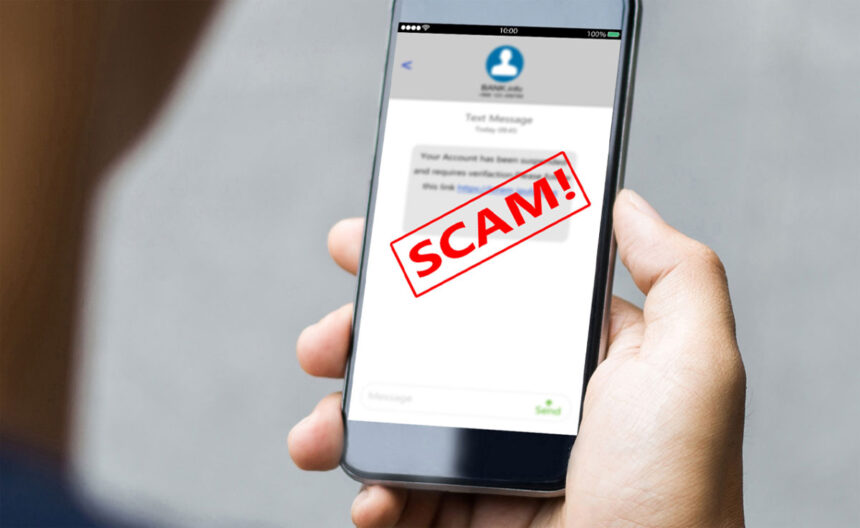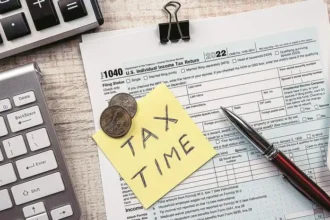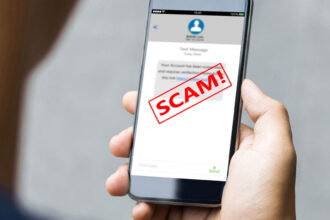Missouri drivers are being targeted by a sophisticated wave of text messages falsely claiming to be from the Missouri Department of Revenue (MDOR), warning of unpaid tolls and threatening penalties if immediate payment isn’t made. These fraudulent messages are part of a nationwide phishing campaign that has already affected drivers in Illinois, Texas, California, and now Missouri.
The Missouri Department of Revenue has issued a warning on social media, advising residents to delete these messages immediately and not to engage with the scammers. As this scheme continues to spread across the state, understanding how it works and how to protect yourself has become increasingly important.
Overview of Missouri Department of Revenue (MDOR) Impersonation Scams
The toll text scam is just the latest in a series of fraud schemes targeting the Missouri Department of Revenue and Missouri drivers. In recent years, the department has battled multiple forms of impersonation scams, including:
- Fraudulent Refund Schemes: In 2023, criminals attempted to create fake income tax payments from fictional bank accounts to trigger fraudulent refunds.
- Direct Impersonation Calls: Scammers calling taxpayers and claiming to be MDOR representatives to collect personal and financial information.
- Fraudulent Tax Documentation: Websites illegally selling Missouri sales tax identification numbers and exemption certificates that can only be legitimately obtained from the Department.
The newest evolution – text messages claiming unpaid tolls or traffic violations – represents a particularly concerning development because of its widespread distribution and effectiveness. What makes these scams particularly troubling is that Missouri has very few toll roads, yet residents are receiving messages about unpaid tolls, creating confusion that scammers exploit.
The MDOR toll text scam appears to be part of a coordinated nationwide campaign that has already targeted numerous state transportation and revenue departments. The consistent patterns across different states suggest either a single organized group or multiple copycat operations using the same effective template.
How the Missouri Department of Revenue Toll Payment Text Scam Works
The scam follows a methodical approach designed to create urgency and fear that overrides normal caution:
- Initial Contact: Victims receive a text message claiming to be from the Missouri Department of Revenue, Department of Motor Vehicles, or a similar official-sounding agency.
- False Claims: The message states that the recipient has an unpaid toll or traffic violation that requires immediate payment, often with a specific (and believable) dollar amount.
- Urgency Tactics: The text includes a deadline (often the same day) and threatens driver’s license suspension, vehicle registration problems, or other penalties if not paid promptly.
- Malicious Link: The message includes a link to a fraudulent website designed to mimic official government sites. These domains often incorporate terms like “Missouri,” “MDOR,” or “DMV” but use unusual domain extensions.
- Unusual Instructions: Many versions include specific, strange instructions like “Please reply Y, then exit the message and reopen it to activate the link” – a tactic that may help evade automated scam detection.
- Data Theft: Once on the fake site, victims who enter personal or payment information have their data stolen. This can lead to unauthorized charges, identity theft, or additional targeted scams.
The effectiveness of this scam comes from its psychological manipulation – creating a sense of urgency about a plausible situation (a missed toll or traffic violation) that might cause significant problems if not addressed quickly. Even cautious individuals might click a link when worried about their driving privileges.
Text Patterns and Common Variations
The fraudulent messages targeting Missouri drivers contain distinctive patterns that can help identify them as scams:
Common Message Formats:
Missouri DMV: You have an unpaid toll violation. Pay your balance of $XX.XX by [DATE] to avoid suspension of your driver’s license. Pay here: [FRAUDULENT URL]
Missouri Dept. of Revenue Final Reminder: Your vehicle has an unpaid traffic violation from [DATE]. To avoid additional penalties, kindly settle your balance of $XX.XX at [FRAUDULENT URL]
MDOR Notice: Your toll payment must be settled by [DATE]. To avoid fines and the suspension of your driving privileges, kindly pay by the due date. Pay here: [FRAUDULENT URL]
Key Language Elements:
- Use of the word “kindly” – consistently identified by scam experts as a red flag
- References to “suspension of driving privileges” or “additional penalties” – creating fear to drive action
- Same-day or imminent deadlines to create urgency
- Polite closings like “Thank you for your cooperation” or “Have a safe journey”
- Unusual instructions about replying “Y” and reopening messages
Suspicious URL Characteristics:
- Domains ending in unusual extensions instead of .gov or .mo.gov
- Complex strings of letters or numbers in the domain
- Unusual hyphens or characters in otherwise legitimate-looking domains
- Use of URL shorteners to hide the actual destination
Sender Information:
- Random email addresses (often “@usa.com,” “@outlook.com,” or similar)
- Phone numbers with area codes outside Missouri
- Random phone numbers with no caller ID information
What makes these messages particularly confusing for Missouri residents is that the state has very few toll roads. Most drivers in Missouri rarely encounter tolls, making these messages immediately suspicious to some but potentially confusing to others, especially those who may have recently traveled to neighboring states with toll systems.
Official Response from the Missouri Department of Revenue
The Missouri Department of Revenue has taken several steps to address this emerging threat:
- Social Media Warnings: MDOR has issued alerts on platforms like Instagram warning about these scam messages and advising residents not to engage.
- Clear Guidelines: The department has provided simple, direct instructions: do not click links, do not respond, delete the messages immediately.
- Education Efforts: MDOR has increased efforts to inform taxpayers about how the department legitimately communicates, emphasizing they do not request personal financial information via text.
- Collaboration with Law Enforcement: The department is working with state and federal agencies to track and prosecute those responsible for these scams.
The official stance of the Missouri Department of Revenue regarding toll-related texts is unambiguous: these are fraudulent messages that should be ignored and deleted. The department emphasizes that legitimate communications about violations or fees would not come via text message with urgent payment links.
Red Flags: How to Identify Fake MDOR Final Reminder Texts
Being able to identify the warning signs of a scam text can protect you from becoming a victim. Here are the key red flags specific to the Missouri Department of Revenue scam texts:
1. Content Inconsistencies
- Messages about toll violations in a state with very few toll roads
- References to agencies or departments with slightly incorrect names
- No specific information about the alleged violation (like location or license plate)
- Generic references to “your vehicle” without specific identifiers
2. Language Patterns
- Use of the word “kindly” (rarely used in official government communications)
- Threats about license suspension or immediate legal action
- Overly formal or unusually polite language
- Grammatical errors or awkward phrasing
3. Technical Red Flags
- Links that don’t end in .gov or .mo.gov
- Sender information that doesn’t match official government contact methods
- Strange instructions about message handling (replying “Y” and reopening)
- Requests to use specific browsers like Safari
4. Timing and Context
- Messages that arrive at unusual hours
- No previous communication about the alleged violation
- No corresponding paper notification (which would be standard practice)
- Requests for unusual payment methods
One particularly important red flag for Missouri residents is the simple fact that Missouri has very few toll roads. If you haven’t recently traveled on the Lake of the Ozarks Community Bridge, traveled to a neighboring state with tolls, or used other limited toll facilities, a text about unpaid tolls should immediately raise suspicion.
How to Protect Yourself from MDOR Scams
Follow these best practices to stay safe from Missouri Department of Revenue and other government impersonation scams:
1. Never Engage with Suspicious Messages
- Don’t click links in unexpected texts about government fees or violations
- Don’t reply to the message, even to say “STOP” (this confirms your number is active)
- Don’t call phone numbers provided in the message
2. Verify Independently
- Contact the Missouri Department of Revenue directly using official contact information from their website (dor.mo.gov)
- For vehicle-related concerns, contact the Missouri Department of Revenue’s Motor Vehicle Bureau at (573) 526-3669
- Remember that legitimate notices about violations typically come through postal mail, not text
3. Report Scam Attempts
- Forward suspicious texts to 7726 (SPAM) to report to your mobile carrier
- Report the scam to the Missouri Attorney General’s Consumer Protection Division
- File a complaint with the FBI’s Internet Crime Complaint Center at ic3.gov
4. Strengthen Your Digital Security
- Enable two-factor authentication on financial accounts
- Use different passwords for different accounts
- Keep your phone’s operating system and apps updated
- Consider using spam filtering features on your mobile device
5. If You’ve Already Clicked
- If you entered personal information, change passwords for affected accounts
- Contact your bank or credit card company immediately if you shared payment information
- Monitor your accounts closely for unauthorized charges
- Consider placing a fraud alert on your credit reports with major credit bureaus
Broader Context: The Nationwide Toll Scam Epidemic
The Missouri Department of Revenue scam texts are part of a larger pattern affecting multiple states across the country. Similar scams have targeted:
- Illinois I-PASS users with texts claiming unpaid tolls and threatening penalties
- Texas TxTag customers with urgent messages about toll violations
- California FasTrak users with fraudulent payment demands
- Drivers in states that have few or no toll roads, creating confusion
This nationwide pattern suggests a coordinated campaign or copycat operations that have identified toll and traffic violations as particularly effective phishing lures. The success of these scams relies on several key factors:
- The plausibility of having an unpaid toll or traffic violation
- The fear of escalating consequences like license suspension
- The creation of artificial urgency through tight deadlines
- The convenience of “resolving” the issue with a simple link click
As these scams continue to evolve and spread to new states, staying informed about the latest tactics and maintaining healthy skepticism about unexpected government communications becomes increasingly important.
Frequently Asked Questions
1. Is any text message claiming to be from the Missouri Department of Revenue about unpaid tolls legitimate?
No. The Missouri Department of Revenue does not send text messages requesting payment for unpaid tolls or traffic violations. Any such message is fraudulent and should be deleted immediately.
2. Can the Missouri Department of Revenue suspend my driver’s license via text notification?
No. The process for driver’s license suspension involves formal written notices through postal mail and multiple opportunities to respond. The department would never initiate such serious action through a text message.
3. What should I do if I already clicked a link in a scam text?
If you’ve clicked a link but didn’t enter any information, you should be relatively safe. However, run a security scan on your device. If you entered personal or payment information, contact your financial institutions immediately, change any compromised passwords, and monitor your accounts closely for fraudulent activity.
4. How can I verify if I actually have unpaid violations or fees in Missouri?
For vehicle-related concerns, contact the Missouri Department of Revenue’s Motor Vehicle Bureau directly at (573) 526-3669 or visit their official website at dor.mo.gov. For general tax inquiries, call (573) 751-3505.
5. Why am I receiving texts about toll violations when Missouri has very few toll roads?
This inconsistency is actually a key indicator that the message is fraudulent. Scammers send these messages broadly to Missouri residents, knowing that some recipients will be confused or concerned enough to click the link, especially if they’ve recently traveled to neighboring states with more extensive toll systems.
Conclusion: Staying Vigilant in an Era of Sophisticated Scams
The Missouri Department of Revenue toll text scam represents just one facet of an increasingly sophisticated landscape of government impersonation fraud. As these scams continue to evolve, the best defense remains awareness, skepticism, and caution.
The most effective protection against these scams is understanding how legitimate government agencies actually communicate. The Missouri Department of Revenue uses official letterhead for important notices, provides multiple ways to verify information, and never demands immediate payment through suspicious links.
Remember these key points:
- The Missouri Department of Revenue will not text you about unpaid tolls
- Official government websites end in .gov or .mo.gov
- Legitimate notices about violations come through postal mail
- Government agencies don’t request that you reply “Y” to text messages
- When in doubt, contact the department directly using official contact information
By staying informed and approaching unexpected communications with appropriate skepticism, Missouri residents can protect themselves from becoming victims of these increasingly prevalent scams.




































Just a FYI I have received these scam messages for unpaid toll in Missouri. I have not leave in Missouri for 14 years and now live in Georgia. I will stay on top of this. Thank you for the helpful information.